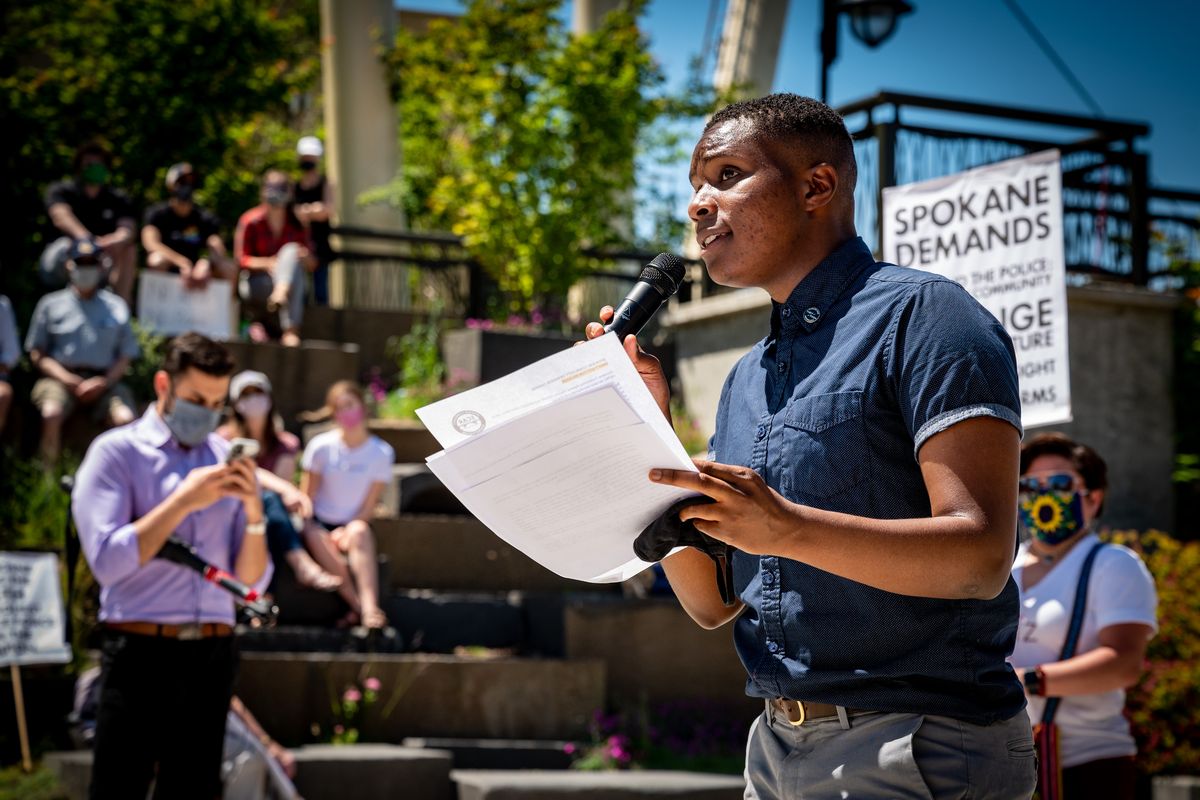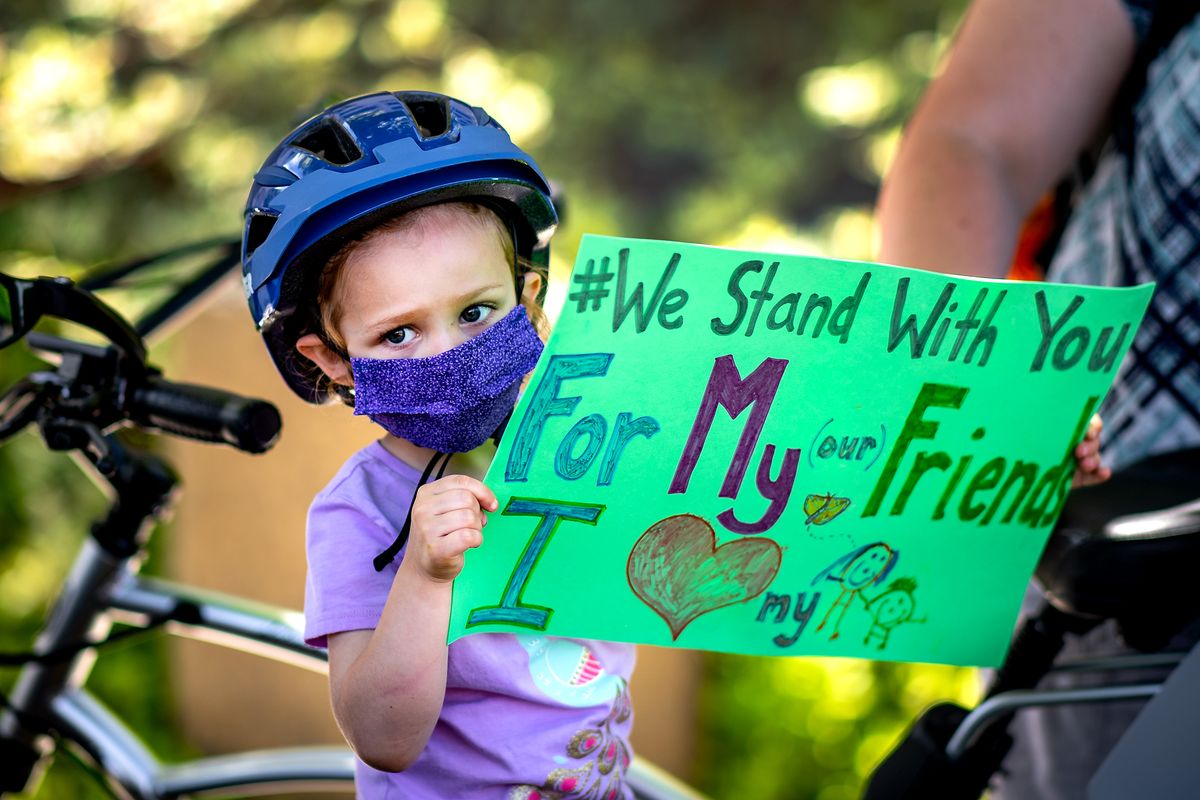Spokane organizations touting police, justice reforms unveil policy plan on Juneteenth

About 200 people sat on steps and stood at Spokane Tribal Gathering Place on Friday outside Spokane City Hall for Juneteenth, the unofficial national holiday celebrating the end of slavery in the United States.
There, protesters listened to policy demands laid out by Spokane organizations that were published on the Spokane Community Against Racism (SCAR) website.

“At the invitation of the city and county, community members have spent thousands of hours sharing their testimony and lived experience in the name of community engagement,” reads an introduction to the platform on ScarSpokane.org. “Yet elected officials have failed to honor this engagement by fulfilling their promises.”
SCAR, the Peace and Justice Action League of Spokane and 11 other community organizations including Hispanic, Muslim and Asian Pacific Islander groups collaborated on the “Platform for Change.”
They broke into four categories of demands: defunding the police to invest in community, changing police culture, police oversight and justice reforms.
Betsy Wilkerson, the sole Black Spokane City Council member, said nothing in the platform is new to lawmakers, and the panel supports the platform.
“The challenge is people’s perception of defunding. It’s kind of a charged word,” Wilkerson said, as she talked with organizers after the event. “But really, how we spend our money, we show where our priorities are.”
Writers of the platform say with money repurposed from police budgets, Spokane could address the “root causes of crime” through addiction and mental health services along with housing and tenant protections.
Supporters demand to replace funding for police in Spokane Public Schools with funding for school counselors, restorative conflict resolution practices and activity programming – all to derail the “school-to-prison-pipeline” that disproportionately impacts youth of color, the document says.
“Police can no longer be a Band-Aid we affix to every problem,” Jac Archer said to the crowd.
Next, the platform tackles the culture of the Spokane Police Department. The groups ask that the department be disbanded and rebuilt with a smaller number of officers.
Dennis Mitchell, a Black Spokane resident on-and-off since 1962, grew up in Mississippi under Jim Crow law. He said he saw his mother fight for freedom in protests at the time, and she moved him to Washington state to escape oppression in the South. But in Spokane today, Black people still aren’t free, he said, because Jim Crow law continues “under the radar.”
“You can’t write a law to change people’s hearts. It had to be from the inside out,” Mitchell said. “Change is only slow because getting people to want to change is slow. But change can happen in an instant once you decide you want to make it happen.”
The platform offers policies to enact a culture shift in the police department, but, Mitchell said, the protests around the platform might do the work of changing hearts.
The document points to the Police Leadership Advisory Committee’s recommendations for hiring the new police chief from 2016, which were drafted in collaboration with the PJALS. Those recommendations “could have revolutionized the culture of the SPD,” according to the document, but they were ignored.
Change will also come through demilitarizing police because Spokane is “not a warzone,” Archer read to the crowd, to hoots and applause. Military uniforms, vehicles, and weaponry tell Spokane residents that the police view them as enemy combatants, according to the document.
The platform demands an increase in police oversight, and points to the Police Guild’s contract currently being negotiated with the City of Spokane.
The contract includes a “poison pill,” Archer said, that would allow the Police Guild to preemptively file a grievance against an Ombudsman candidate to stop an appointment in its tracks.
Finally, under the umbrella of justice reforms, the platform demands that instead of building a new jail, the county invest in releasing sentencing data sorted by judges and demographics of defendants. The demands also include starting an Office of Civil Rights, pointing to prior work to structure this office.
Though the crowd was mostly white, the Rev. Rick Matters, a white member of SCAR, said he’s honored to serve on a committee of primarily people of color.
“I have a strong, visceral sense of a calling to fight for racial equity,” Matters said.
Wilkerson said protests like these give her hope for America. She said it’s like the country is finally ready to birth justice, after a long pregnancy.
But she expects more resistance in Spokane, and the demands that will be hardest to meet are to demilitarize police, change force tactics and maintain the Office of Police Ombudsman’s freedom to oversee police.